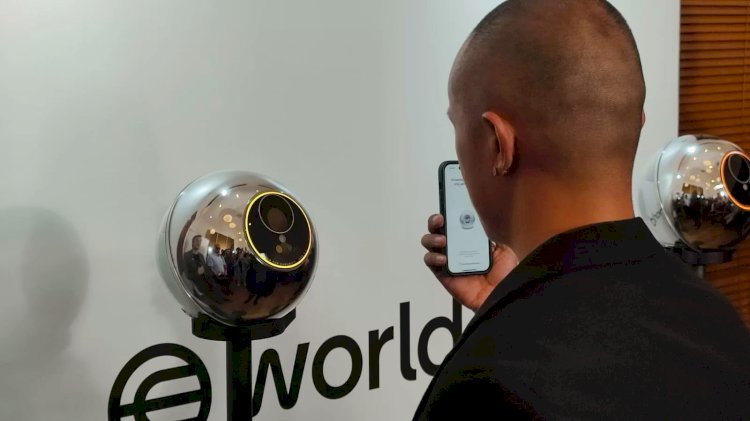Indonesia has joined a growing list of countries suspending operations related to Worldcoin, a digital identity and cryptocurrency project founded by OpenAI CEO Sam Altman.
The platform, which gained attention for offering USD 50 to individuals willing to have their retinas scanned, has raised widespread concerns about privacy and data protection.
The suspension by Indonesia’s Ministry of Communication and Digital (Menkomdigi) follows allegations of regulatory noncompliance. Menkomdigi revealed that PT Terang Bulan Abadi, the local entity allegedly behind Worldcoin’s operations, had failed to register as an Electronic System Provider (PSE), a legal requirement for digital service platforms in Indonesia.
“This preventive measure was taken to mitigate potential risks to the public,” said Alexander Sabar, Director General of Digital Space Oversight at Menkomdigi, as quoted by liputan6.com. “Noncompliance with registration obligations and the use of another legal entity’s identity to operate a digital service is a serious violation.”
What is Worldcoin and Why Countries are Intensifying Scrutiny
Worldcoin is part of the broader “World” ecosystem, which includes services like World ID, World App, World Chain, and World Coin — a cryptocurrency usable within the World network.
Users can claim Worldcoin for free by verifying their identity through the Orb, a biometric device that scans the iris and collects high-resolution facial and bodily data.
Despite promises of secure and anonymous human verification in the era of artificial intelligence, the platform’s practices have raised global concerns. According to CNN Indonesia, various countries have started to scrutinize the platform’s operations.
In Spain, the Spanish Data Protection Agency (AEPD) issued a temporary ban in 2024 following complaints about insufficient information disclosure, data collection from minors, and difficulties in withdrawing consent. The AEPD ordered Worldcoin to cease personal data collection and block the use of previously gathered data.
Hong Kong’s Privacy Commissioner for Personal Data (PCPD) took similar action in May 2024, citing excessive and unnecessary biometric data collection. Investigations revealed several violations, including a lack of transparency and disproportionate long-term data storage plans.
Kenya became one of the first countries to suspend Worldcoin activities in mid-2023 over concerns about exploitative practices and a lack of informed consent. Reports surfaced suggesting citizens were unclear about why their iris data was being collected, raising privacy alarms.
In Brazil, the National Data Protection Authority (ANPD) banned Worldcoin from offering cryptocurrency or other incentives in exchange for biometric data, arguing that such compensation could undermine voluntary consent.
Portugal imposed a 90-day suspension in March 2024 due to the collection of data from minors without proper parental consent and insufficient communication regarding data usage and user rights.
Indonesia Challenges Worldcoin’s Biometric Operations
In 2022, MIT Technology Review accused Worldcoin of targeting vulnerable communities, including villages in West Java, Indonesia, in exchange for financial incentives. The publication claimed that the company’s approach often involved local officials and lacked transparency.
Despite the controversies, Worldcoin defends its technology. According to its official website, biometric data is used to create a unique “IrisHash” stored locally on the Orb, which is never shared. The company also states it uses advanced cryptographic methods, such as zero-knowledge proofs, to ensure privacy, and claims all data is deleted once AI model training is complete.
Tools for Humanity (TFH), the startup behind Worldcoin, officially launched its services in Indonesia in February 2025, despite reports that data collection had begun years earlier. After Menkomdigi’s intervention, TFH voluntarily suspended operations in Indonesia and expressed willingness to engage with regulators.
“We have paused our verification services in Indonesia and are working closely with the government to ensure full regulatory compliance,” TFH said in a public statement.
As scrutiny grows, the global debate on the ethics and legality of biometric data collection in exchange for digital assets continues to evolve, with Indonesia now firmly at the center of that conversation.
Source: cnnindonesia.com, liputan6.com
Photo Credit: via JCCNetwork


